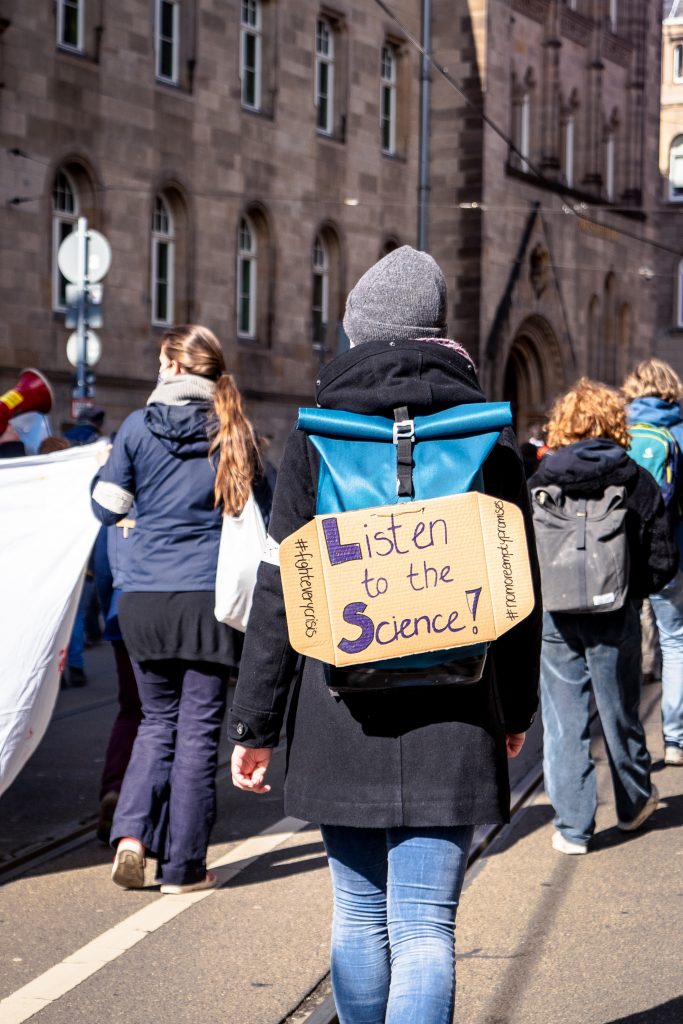By Lowenna Arnold, Hector Sanchez and Julia Kreß
How the urgency of permafrost melting in the Arctic impacts emotional responses within research and why they should be better communicated
Permafrost thawing is not only a physical threat to our environment and communities, but is also a phenomenon that releases an emotional impact. In this blogpost, we want to highlight the emotional impact that permafrost has in the scientific community by presenting the results from a series of qualitative interviews that we conducted with researchers from different countries in Europe. We have called this phenomenon human warming, an individual’s growing emotionality towards the climate issues we face through research work. Emotions are complex and multifaceted, they are determined by our past experiences and shape our attitudes toward future scenarios. Where are the connections between emotions, science data and communication? For some reason, we seem to treat emotions and science as separate entities when, in fact, they directly influence each other. This is why, we reckon that there is not enough integration between emotions and scientific research and this needs to change.

As previously mentioned by the Intergovernmental Panel on Climate Change, due to the release of greenhouse gases, permafrost melting is becoming more problematic for the global population. Scientists are warning that the urgency of our worsening situation requires us to act quickly and mitigate the detrimental impacts. This directly correlates with how we feel, which can either encourage us to act in a certain way or suppress our actions. In this blogpost, we wanted to take into account researchers’ emotions as they are key figures in environmental data collection and analysis, even if emotions are rarely acknowledged. Our research contributes to the reflection on how interlinking our emotions with research could release new opportunities, such as expressing openly cultural and social values that are normally undervalued. By acknowledging the full range of emotions, we can make sure social, ecological and economic aspects are equally valued in decisions. This would allow to tackle the urgency of climate change by effectively communicating to society in a more hopeful and motivational way.
We interviewed permafrost scientists about their emotional challenges and the changes they would like to see to future research communication. These scientists are part of the organization PYRN (Permafrost Young Researchers Network), and they are based in Bulgaria, Russia, the Netherlands and Sweden. As part of our research, we attended their monthly seminar events.
Experiencing emotions in research
“I can’t have any sentimental emotions because that is something I never see”
According to our interviews’ findings, more attention needs to be paid to our collective image of the Arctic, which is based on an image of a “desolate and inhabitable landscape”. Researchers in our interviews explained that for them it is difficult to express the urgency of climate change in the specific area of the Arctic. As they all agreed, it is difficult to feel emotions about something you have never experienced or that you do not accurately imagine. We recognized in our interviews the large mental load that researchers carry from their work, their everyday lives, the magnitude of information they collect and, lastly, the pressures they face when trying to convey it to society. They have limited possibilities to express their own emotions and to consider alternative ideas and experiences. Their personal connections to the topics are connected by their social and cultural values that are motivating them for their ongoing research. By integrating these personal connections and emotions in their science communication, more people can learn of these alternative values and understand the importance of their findings and why we should care.
Based in the conversations we held with the interviewees, we state that by incorporating emotions into research and communication, we can share our experiences and learn to see the whole perspective. Without emotions being properly acknowledged, we cannot effectively tackle the urgency of our situation as a collective community. It is almost a paradox that scientists cannot consider their emotions within their work when trying to find answers of mutual benefit to everyone.
Emotions suppressing actions
“The truth is that there is climate change, but it is not so apocalyptic like people say and feel about this.”
As highlighted constantly in our conversations with researchers, they consider that while specialists are constantly researching permafrost thawing, they are barely involved in poli tical decision making at a large international scale. That said, from our point of view and our interviewees, ecological anxiety is exacerbated by government-led decisions that make our personal choices seem irrelevant and inconsequential. Society is more inclined to ignore science if they feel there is nothing they can do to change the predicted future. The motivation to act is lost when apocalyptic futures are expressed. The urgency of our situation needs to be conveyed in both a realistic and motivating way and not in a hopeless sense to keep people engaged.
An emotion that was highlighted by our interviewees was frustration. In this sense, frustration is released because of political decisions at national and international levels, which do not integrate other sectors as well as scientific results. Thus, they see that their work has a political aim.

Extracting information
“The Internet is like a vast ocean of information, finding the useful information is like looking for a needle there.”
The scientists that we interviewed expressed understanding of people’s behavior, agreeing that it is overwhelming to cope with ambivalent information that constantly changes. In our opinion, we need to balance the feeling of anxiety and despair with a degree of hopefulness to encourage people to act. Therefore, our results show that it is important to be honest and direct with the information published to society. This is an additional workload for scientists, extracting the “good” information in more understandable means. The fact that there is so much information online is the reason why people are discouraged from finding the most reliable sources.
As highlighted by our interviewees, a greater variety of communication mediums and visual material should be utilized, such as artwork and photographs. They expressed that using a greater variety of communication channels could provide a more realistic sense of the climate emergency to a wider audience. We could relate to researchers in a deeper sense, changing our attitudes and making a collective difference in our sustainable behaviors. Emotions are not something that is too far apart from research work because they are the baseline for selecting topics and researching permafrost. By involving emotions in science, people all over the world will be able to better relate to the issues surrounding permafrost thawing and understand the importance of researching its effects and the urgency of changing our future. Human warming is just as important to accept as global warming as both affect our wellbeing and our future sustainability. And how do you feel about that?

Lowenna Arnold is an undergraduate student from the University of Exeter studying Conservation Biology and Ecology.
Julia Kreß is a Master’s student of Applied Biology at University of Freiburg (Germany), and was enrolled as an exchange student the University of Helsinki.
Hector Sanchez is an alumnus from the Master’s program in Intercultural Encounters at the University of Helsinki.
Teachers: Reetta Toivanen and Anna Varfolomeeva
References:
Ahmed, S. (2004). The cultural politics of emotion. Edinburgh University Press
Lempinen, H. Lindroth, M. (2021). Fear and hoping in the Arctic: charting the emotional fabric of resource extraction. The Extractive Industries and Society
Moo, J. (2015). Climate change and the apocalyptic imagination: science, faith and ecological responsibility, Zygon, 50(4): 937-948
PRYN website – pryn.arcticportal.org: Permafrost Young Researchers Network: Home – PYRN
Ryan, K. (2016). Incorporating emotional geography into climate change research: A case study in Londonderry, Vermont, USA, Emotion, Space and Society, 19, pp. 5–12.
Cover Photo by Siarhei Plashchynski on Unsplash

